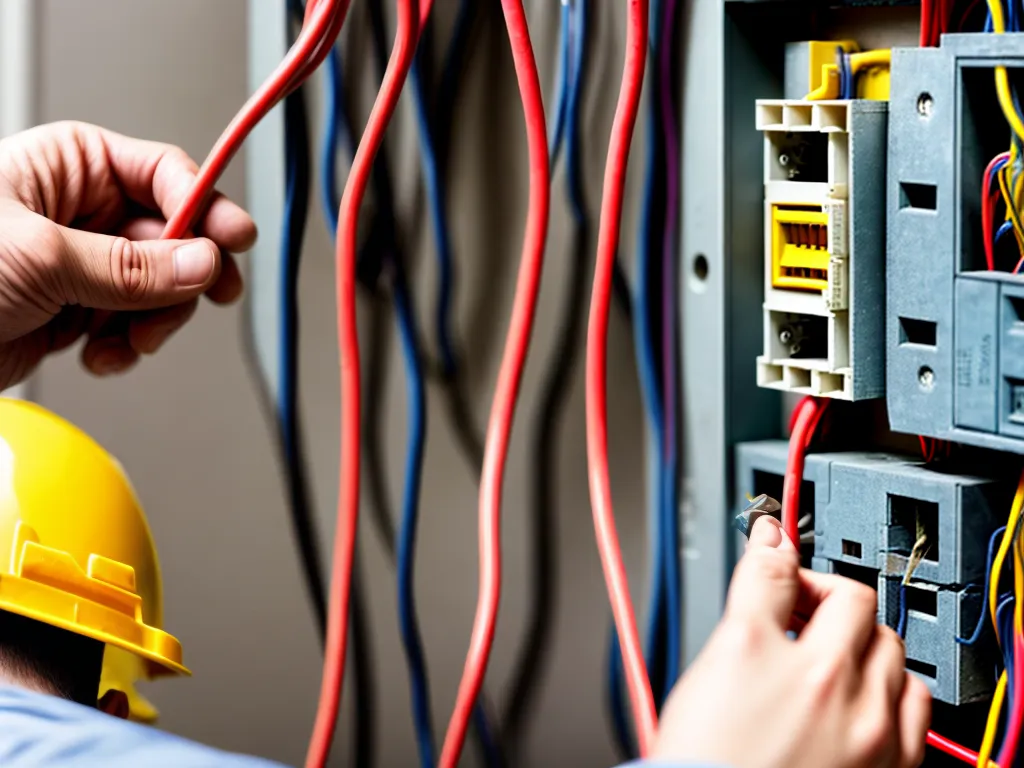
How to Follow Proper Electrical Wiring Standards Without Any Formal Training
Introduction
Electrical work can seem daunting to tackle without professional training, but with the right preparation and attention to safety, it is possible for a homeowner to learn how to follow proper electrical wiring standards on their own. The key is taking the time to thoroughly research the applicable codes and recommended practices before attempting any electrical project.
Learn the National Electrical Code
The National Electrical Code (NEC) provides the legal standards for safe electrical installations across the United States. While detailed and complex, the NEC can be purchased as a book or accessed online for free. At minimum, an amateur electrician should understand the basics of the NEC, including:
- Requirements for different types of wiring and cables: such as minimum sizes, insulation ratings, and uses for cables like NM, UF, THHN, etc.
- Circuit and component requirements: including standard voltage and amperage ratings, overcurrent protection and size of overcurrent devices, number of outlets per circuit, etc.
- Safety standards: grounding, GFCI and AFCI protection, minimum cover and clearance space around electrical components, etc.
Spending time studying the NEC is essential to gaining the knowledge needed for safe DIY electrical work. The key sections to focus on are Chapters 1-4 which cover wiring and protection requirements.
Learn Electrical Theory
While the NEC provides the practical guidelines, some basic understanding of electrical theory is also needed for wiring work. Key concepts to learn include:
- Current, voltage, and resistance: understanding the relationship between amps, volts, and ohms helps explain how electricity flows in a circuit.
- AC and DC power: alternating and direct current, key differences, and uses for each in residential wiring.
- Series vs parallel circuits: how current flows in these two fundamental circuit configurations.
- Conductors, insulators, and grounding: why certain materials conduct electricity, while others resist flow and provide insulation. The purpose of equipment grounding and ground wires.
There are many articles and videos available online to provide visual examples of these concepts. Hands-on experiments can also help reinforce electrical theory.
Acquire the Right Tools and Materials
Attempting electrical work without the proper tools and materials can be hazardous. At minimum, assemble the following essentials:
- Voltage tester: A non-contact sensor to detect live voltage in wires and outlets.
- Clamp meter: Measures current flow to verify circuits are properly connected.
- Wire strippers: For removing insulation on wires.
- Linesman pliers: For bending, cutting, and holding wires.
- Insulated screwdrivers
- Fish tape: For running cables inside of walls.
- Electrical tape and wire nuts
- GFCI outlet for testing
Invest in commercial grade tools rather than the consumer grade versions sold at home stores. Ask an electrician for quality brands to look for when buying tools.
Study DIY Resources Extensively
While you may understand the codes and theory, there are essential real-world skills needed to complete electrical projects properly. Excellent resources exist online and in books to teach all aspects of home wiring:
- YouTube electrical wiring channels like Electrician U provide detailed, step-by-step video tutorials.
- DIY sites like FamilyHandyman.com offer guides, project overviews, safety tips, and code explanations.
- Books like Electrical Wiring by Black & Decker have extensive photos and instructions for home wiring projects.
Spend ample time studying and absorbing the information from these guides to prepare for your own projects. Pay special attention to instructions on making proper wire connections, installing boxes and devices, routing cables, and testing circuits.
Start with Basic, Low-Voltage Projects
Before tackling any complex household wiring, begin by getting comfortable with some basic, low-voltage electrical projects to build experience:
- Install new low-voltage lighting around the home, such as LED path lights.
- Upgrade switches and outlets to more modern versions without modifying the actual wiring.
- Rewire lamps and appliances to repair damaged cords and plugs.
- Install doorbells or thermostats with simple two-wire connections.
These projects allow you to practice fundamental skills like stripping and joining wires, without touching any dangerous household voltage circuits. Take it slowly and focus on developing good technique.
Work Safely At All Times
Electrical safety should be your top priority. Make it a rule to always double check that power is disconnected fully before touching any wires when working. Other key safety tips:
- Keep all wiring, junction boxes, and devices properly enclosed so no live wiring is exposed.
- Use GFCI outlet protection anywhere near water sources.
- Do not take on any electrical project that you do not fully understand or feel comfortable attempting. Know your limits.
- Have an experienced electrician review your work any time you take on a major new circuit or wiring project.
By studying diligently and focusing on safety, an amateur can learn proper techniques for residential electrical work. But proceed slowly, practice often, and never hesitate to call a professional electrician if needed.